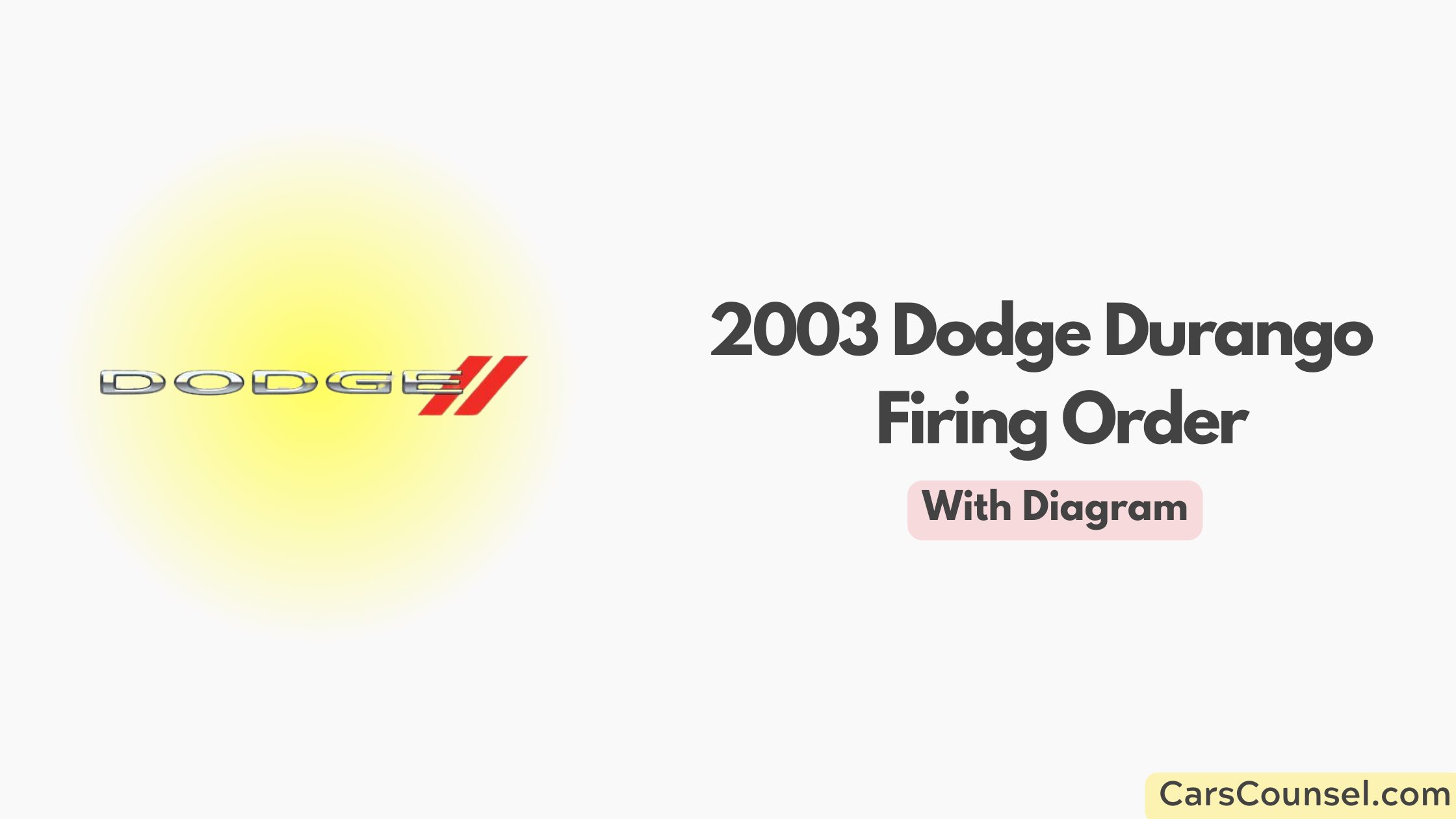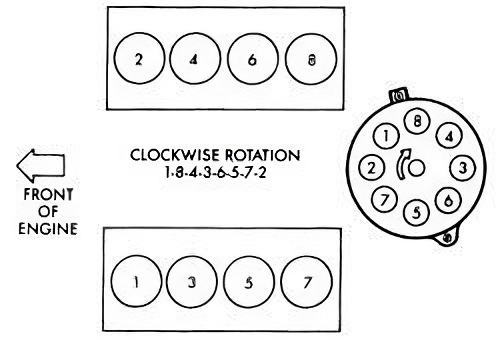The firing order for a 2003 Dodge Durango is vital for maintaining the best performance of your engine. You should start with the number one cylinder, located on the driver’s side, at the front of the engine, kickstarting the sequence.

Keep in mind that an incorrect firing order can lead to power and efficiency loss, causing symptoms like decreased fuel efficiency, rough idling, or even knocking sounds. Recognizing these symptoms is essential to preventing long-term engine damage. Stay with us to acquire more knowledge on how understanding the detailed firing sequence can enhance your vehicle’s performance.
Quick Navigation
Key Takeaways
- The 2003 Dodge Durango firing order is 1-8-4-3-6-5-7-2.
- The number one cylinder is located on the driver’s side, front of the engine.
- Incorrect firing order can cause misfires, loss of power, and reduced fuel efficiency.
- A diagram will indicate the precise arrangement of spark plugs for optimal firing sequence.
- Regular tune-ups can ensure accurate firing order and enhance vehicle performance.
Understanding the Firing Order

To truly grasp the concept of a firing order, like the 1-8-4-3-6-5-7-2 sequence in your 2003 Dodge Durango, you must envision the engine as a pulsating heart that thrives on precision for peak performance. This ordered sequence is important for performance optimization and engine efficiency.
The firing sequence is a pre-determined pattern that your engine uses to ignite the spark plugs. It’s not random; it’s a carefully calculated pattern, designed to balance the engine’s power and minimize vibrations. Your Durango’s spark plug arrangement follows this sequence with precision, ensuring that each cylinder fires at just the right time.
Understanding this sequence is essential for maintaining your vehicle’s peak performance, as a misfire or incorrect firing sequence can lead to a significant drop in power and efficiency.
Identifying Cylinder Number One
Now that you’ve got a grip on your Durango’s firing order, let’s pinpoint the location of the Number One cylinder, as it plays a leading role in this sequence.
The Number One cylinder ignites first, setting the stage for all subsequent firings. For the 2003 Dodge Durango, it’s situated on the driver’s side, at the front of the engine. Identifying this cylinder is critical, as an error could disrupt the entire firing order, compromising engine performance.
Think of it as the heart’s initial beat, vital for the rhythm and harmony of the system. Essentially, this cylinder kickstarts the performance, dictating the efficiency and power of the engine. It’s essential to correctly identify it to maintain peak engine performance.
Symptoms of Tune-Up Requirement
Recognizing the signs that your 2003 Dodge Durango might need a tune-up can prevent long-term damage and maintain the efficiency and power of your engine. Tune-up symptoms are often subtle, but they can significantly impact your fuel efficiency and overall engine performance if ignored.
- Decreased Fuel Efficiency: If you’ve noticed that your Durango isn’t getting the mileage it used to, it might be time for a tune-up. Poor fuel efficiency can indicate that your engine isn’t firing effectively.
- Reduced Power: Your Durango should respond quickly and powerfully when you press the accelerator. If it’s sluggish, a tune-up can help restore its performance.
- Irregular Idling: Rough or inconsistent idling is a classic sign of engine trouble.
- Unusual Noises: Listen for knocking or pinging sounds – these could be signs that your engine’s firing order needs adjustment.
Engines with Similar Firing Orders
Conclusion
So, there you have it! You’re now practically a wizard in deciphering the 2003 Dodge Durango’s firing order.
With this knowledge, your trusty vehicle will be purring like a kitten on steroids in no time. Remember, a well-tuned engine is the secret ingredient to a smooth, powerful ride.
Don’t ignore the signs, keep that firing order in check, and your Durango will reward you with miles and miles of uncompromised performance.

